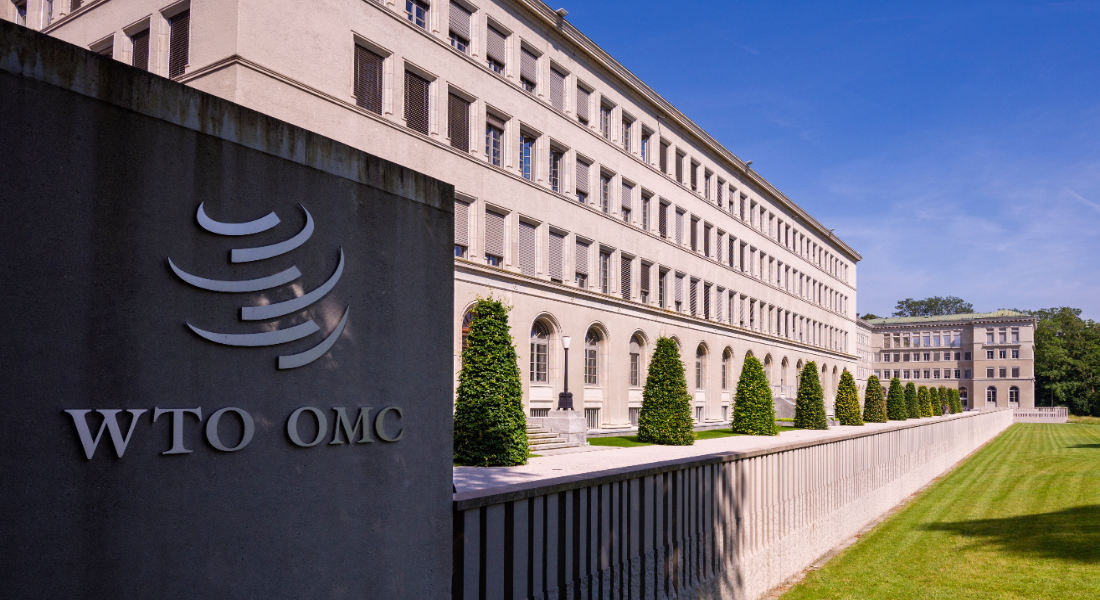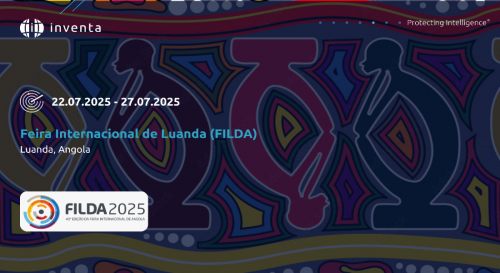
WTO Geneva Package: a breakthrough for Africa?
In Geneva, on June 17, ministers, and delegates at the World Trade Organisation’s (WTO’s) Twelfth Ministerial Conference (MC12) reached an agreement on a series of key trade initiatives. The deal represents a breakthrough for the Organisation which has created one agreement between all 164 members in its 27-year existence to date.
This long-anticipated achieved consensus took place after MC12 had been postponed for two years due to COVID-19 and deepened with the Russia and Ukraine conflict. It was heard in the voice of Ngozi Okonjo-Iweala, the World Trade Organisation's Director-General, “You stepped up and delivered in every area we have been working on,” which celebrated a striking moment of real multilateral success with the organisation’s members.
After these words, a series of unprecedented decisions and agreements now known as the Geneva Package was listed after the members “can come together, across geopolitical fault lines, to address problems of the global commons, and to reinforce and reinvigorate this institution.”
Focus points of the Geneva Package
A package on WTO response to provide concrete trade-related responses to important challenges facing the world today, comprising:
- the WTO’s response to the pandemic, including intellectual property rights response
- Fisheries subsidies
- Food insecurity
- e-commerce work programme and moratorium
- WTO reform
We will focus our discussion on topic number one for this article.
TRIPS Waiver
Until now, four WTO members, the US, the European Union, the UK, and Switzerland produced over 90% of COVID-19 vaccines. However, more than 80% of Africans remain unvaccinated according to the United Nations.
Trying to give an urgent response to the ongoing impact of COVID-19, members adopted a Ministerial Declaration on the WTO response to the current and future pandemics. As stated in the Ministerial Declaration, members experienced supply constraints of COVID-19 vaccines, therapeutics, diagnostics, and other essential medical goods.
Thus, these experiences were not shared equally during the pandemic, due to members' differing levels of development, financial capabilities, and degrees of import dependence on those products.
In this regard, one of these measures is a waiver of certain requirements under the Agreement on Trade-Related Aspects of Intellectual Property Rights (TRIPS) concerning the use of compulsory licences to produce COVID-19 vaccines.
In 2020, South Africa and India proposed a waiver to the TRIPS Agreement allowing countries to suspend patent and other IP protections on COVID-19-related products and technologies, such as vaccines, therapeutics, and diagnostics, for the duration of the pandemic.
Nevertheless, the major developed countries have not agreed with this measure, consistent with the pharmaceutical sectors, which considered that the waiver would be unnecessary and would challenge the profit incentives that IP provides to develop new drugs.
The Ministerial Decision on the TRIPS Agreement will provide a platform for members to work together to diversify vaccine production capacity.
According to Okonjo-Iweala: "[he declaration] will make access to medical supplies and components more predictable in this pandemic, and in the next one."
The compromise “will contribute to ongoing efforts to deconcentrate and diversify vaccine manufacturing capacity, so that a crisis in one region does not leave others cut off”.
It was recalled that the Doha Declaration on the TRIPS Agreement and Public Health of 2001 shall not inhibit members from taking measures to protect public health.
Additionally, members shall use, to the full, these agreements, which provide flexibility to protect public health including in future pandemics. In the next five years, members can override the exclusive effect of patents through a targeted waiver to provide a streamlined avenue for exporting vaccines to countries in need, directly or through international humanitarian programmes.
The technical support from the World Health Organization, the World Intellectual Property Organization, and the WTO will be essential to decide (no later than December 2022) whether to extend the waiver to cover the production and supply of COVID-19 diagnostics and therapeutics.
This will certainly cause a debate between countries where pharmaceutical sector has a strong presence. The TRIPS Council publishes a record of such binding commitments by members pledging not to avail themselves of this decision.
Members have agreed to accelerate WTO reform, which requires a renewed commitment to address longstanding and sensitive issues such as the effectiveness of special and differential treatment and the decision-making process.
The 13th WTO Ministerial Conference (MC13) shall be held by December 31, 2023.
This is a co-published article, which was originally published in the World Intellectual Property Review (WIPR).
Lista de Territórios
Não existem resultados para a sua pesquisa.
- África
- África do Sul
- Angola
- Argélia
- Benin
- Botsuana
- Burkina Faso
- Burundi
- Cabo Verde
- Camarões
- Chade
- Comores
- Costa do Marfim
- Djibuti
- Egito
- Eritreia
- Eswatini (Suazilândia)
- Etiópia
- Gabão
- Gâmbia
- Gana
- Guiné
- Guiné-Bissau
- Guiné-Equatorial
- Lesoto
- Libéria
- Libia
- Madagáscar
- Maiote
- Malaui
- Máli
- Marrocos
- Maurícias
- Mauritânia
- Moçambique
- Namíbia
- Níger
- Nigéria
- Quénia
- República Centro-Africana
- República Democrática do Congo
- República do Congo
- Reunião
- Ruanda
- Saara Ocidental
- São Tomé e Principe
- Seicheles
- Senegal
- Serra Leoa
- Somália
- Sudão
- Sudão do Sul
- Tanzânia
- Togo
- Tunísia
- Uganda
- Zâmbia
- Zanzibar
- Zimbábue
- África (OAPI)
- África (ARIPO)
- Mais Territórios
- Macau
- Maldivas
- Portugal
- Timor Leste
- Marca da União Europeia (EUIPO)
- Marca Internacional (Sistema de Madrid)
- Patente Europeia (IEP)
- Tratado de Cooperação em matéria de Patentes (PCT)




